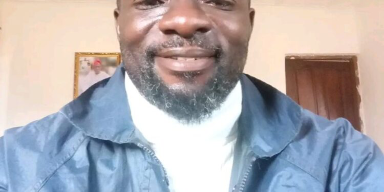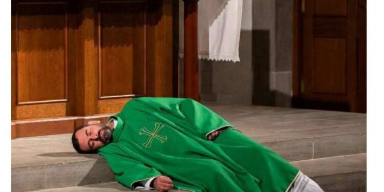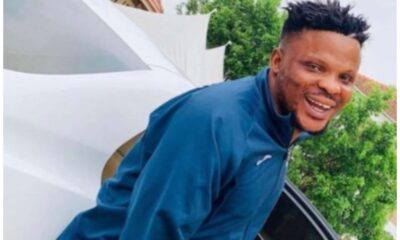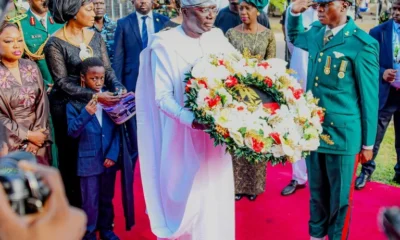Columns
How $6.2m Stolen From CBN Within 24 Hours Was Shared
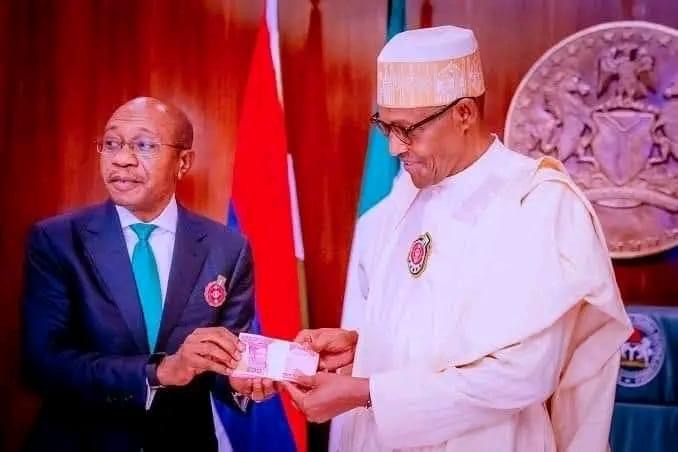
The sum of $6,230,000 allegedly stolen from the Central Bank of Nigeria (CBN), on February 8, 2023, was shared and invested into real estate, according to court documents.
The $6.2 million, according to the special presidential investigative team, led by Jim Obaze, that probed the tenure of the immediate past CBN Governor, Godwin Emefiele, was removed from the apex bank’s vault under the guise of paying election observers.
Emefiele is standing trial on an alleged 20-count amended charge, preferred against him by the Economic and Financial Crimes Commission (EFCC).
He was alleged to have engaged in criminal breach of trust, forgery, conspiracy to obtain by false pretence and obtaining money by false pretence when he served as central bank chief.
In the court documents, investigators described the theft as an insider’s job, allegedly effected by mainly, CBN officials with the connivance of two outsiders, identified as Adamu Abubakar and Imam Abubakar.
According to the documents, investigators claimed that Odoh Eric Ocheme, Emefiele’s personal assistant, received $3,730,000 of the funds, with three other people splitting the remaining $2,500,000.
Ocheme was said to have justified his lion’s share by claiming he had to pay other interests he had within the apex bank.
In one of the court documents, it was revealed that some of the beneficiaries invested their shares of the loot, estimated at about N1.4 billion in real estate, part of which has now been recovered.
In an affidavit filed along with an extradition charge pending against Adamu Abubakar, Imam Abubakar and Odoh Eric Ocheme before a Federal High Court in Abuja, one of the investigators, a Deputy Superintendent of Police, gave details of investigators’ findings and progress made so far.
Adamu Abubakar, Imam Abubakar and Ocheme are said to be at large and are believed to have fled the country.
This informed the initiation of extradition proceedings against them before the Federal High Court in Abuja.
The Deputy Superintendent of Police was quoted to have said: “We commenced investigation into the case and obtained copies of the withdrawal slip as well as the accompanying documents, Central Bank of Nigeria memos, dated 07/02/2023 and 31/01/2023 respectively, staff identity card of one Jibril Abubakar, letter dated 2/01/2023 purportedly written by Muhammadu Buhari to Boss Mustapha and letter dated 20/01/2023 purportedly written by Boss Mustapha to Mr Godwin Emafiele, which the Central Bank of Nigeria, Abuja Branch relied on in making the payment.
“Investigation at the office of the President as well as the Secretary to the Government of the Federation in the Stale House revealed that the letters purportedly written by Muhammadu Buhari and for Secretary to the Government of the Federation (SGF) Boss Mustapha did not emanate from the offices respectively, while Jibril Abubakar, whose identity card was used to cash the money in question is not a staff of the office of the Secretary to the Government of the Federation.
“We watched the Closed-Circuit Television (CCTV) footages of the 08/02/2023 being the day the money in question was cashed, and the payee (Jibril Abubakar) could not be identified by the staff of either the CBN or that of the office of the Secretary to the Government of the Federation, where he falsely represented himself to be working.
“A further study of the Closed-circuit Television (CCTV) footage revealed that a staff of the Abuja Branch of the Central Bank of Nigeria, identified as Abdulmajeed Muhammad received the impostor (Jibril Abubakar) at the gate of the bank when he arrived on the fateful date: 08/02/2023.
“Abdulmajeed Muhammad was consequently arrested and in his statement made on 15/12/2023, he admitted helping the impostor into the Abuja Branch of the Central Bank of Nigeria, but claimed that he did that innocently, the impostor having been referred to him by Bashirudeen Maishanu; a Senior Staff of the CBN.
“Abdulmajeed Muhammad further revealed that prior to 08/02/2023 when the impostor came to cash the money in question, he (Abdulmajeed Muhammad) had been invited by Bashirudeen Maishanu to explain the procedure of public officials making cash withdrawal from the CBN as those persons claimed to be officials from the office of the SGF and that the then president had approved certain fund for official assignment.
“We visited Kuje Correctional Centre, where we interviewed Godwin Emefiele, who purportedly approved the memos authorising the payment, as then CBN and he denied seeing, talk less of approving such memos.
“We also arrested some concerned staff of the Central Bank of Nigeria, who denied any involvement in the crime, before we finally arrested Bashirudeen Maishanu, who corroborated the account of Abdulmajeed Muhammad and further confessed to have been involved in the crime which, according to him was perpetrated by himself and the first to third defendants/respondents – Adamu Abubakar, Imam Abubakar and Odoh Eric Ocheme.
“Bashiru Maishanu further confessed that himself, the first and second defendants/respondents (Adamu Abubakar and Imam Abubakar) shared the sum of $2,500,000.00 from the stolen money, while the third defendant/respondent (Odoh Eric Ocheme), being a fellow staff of the Central Bank of Nigeria, kept the balance of $3,730,000.00 claiming that he had other interests to settle in the CBN.
“Bashirudeen Maishanu further confessed that both himself, and the first and second defendants/respondents jointly invested the United States dollars equivalent of the sum of N1, 440,000,000.00 into real estate business of Afrolyk Global Ltd.
“The Managing Director of the said Afrolyk Ltd, Aminu Lawal has been arrested and he confirmed the investment by Bashirudeen Maishanu, Adamu Abubakar and Imam Abubakar, and already refunded the sum of $200 000 00 to the Special Investigator’s team as part of the money he (Aminu Lawal) received as part of the purported investment.
“Cash of about $400,000 00 has also been voluntarily returned by Bashiru Maishanu from part of his remaining share of the money in question. The money (the $6,230,000) was received in cash from the Central Bank at Nigeria and also shared in the same cash by the defendants/respondents and others, making it difficult to trace the monies without arresting the defendants/respondents.
“It was later revealed that the third defendant – Odoh Eric Ocheme – was the Personal Assistant to Godwin Emefiele as the CBN governor while the first and second defendants (Adamu Abubakar and Imam Abubakar) are businessmen and associates of Bashirudeen Maishanu.”
Columns
Important Facts About Adegoke Adelabu – “The Lion of the West” (1915–1958)
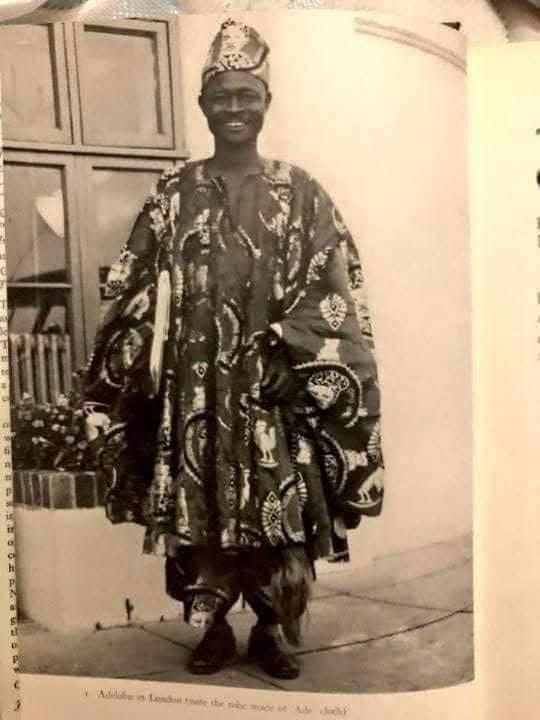
Full Name: Alhaji Adegoke Gbadamosi Adelabu
Birth Name: Gbadamosi Adegoke Akande
Date of Birth: 3 September 1915
Place of Birth: Ibadan, present-day Oyo State, Nigeria
Nickname: “The Lion of the West” — a title earned for his fearless, combative, and charismatic political style
Education:
St. David’s School, Kudeti, Ibadan (1925–1929)
Government College, Ibadan (from 1936)
Yaba Higher College (admitted on scholarship)
Intellectual Reputation:
Adelabu was renowned for his exceptional oratory, sharp intellect, and ideological boldness, making him one of the most formidable politicians of his generation.
Popular Alias:
Known among his largely non-literate supporters as “Penkelesi” — a Yorubanised version of “peculiar mess”, a phrase he frequently used in speeches, which became inseparably associated with him.
Political Affiliation:
A leading member of the National Council of Nigeria and the Cameroons (NCNC) under Dr. Nnamdi Azikiwe during the colonial era.
Political Rivalry:
He was a fierce and ideological opponent of Chief Obafemi Awolowo in the Western Region, making Western Nigerian politics highly competitive and polarized in the 1950s.
Colonial-Era Persecution:
Adelabu is widely regarded as one of the most persecuted opposition politicians of the colonial period, having faced about 18 court cases, many believed to be politically motivated.
Corporate Achievement:
He made history as the first African General Manager of the United Africa Company (UAC), a major British trading firm, marking a significant breakthrough for Africans in colonial corporate leadership.
Death:
Date: 25 March 1958
Place: Ode-Remo, Ijebu Province (present-day Ogun State)
Cause: Fatal motor accident involving his Volkswagen Beetle, alongside a Lebanese business associate and two relatives
Age at Death: 43 years old — two years before Nigeria’s independence
Family:
At the time of his death, Adelabu had 12 wives and 15 children, reflecting the social norms of his era.
Aftermath of Death:
His sudden and tragic death sparked widespread riots and unrest across Ibadan, underscoring his immense popularity and political influence among the masses.
Historical Significance:
Adelabu remains one of the most charismatic, controversial, and intellectually formidable politicians in Nigerian pre-independence history, often remembered as a symbol of radical opposition politics and mass mobilisation.
Source:
Nigerian political history archives
Ibadan colonial-era political records
Biographical accounts on Adegoke Adelabu
Yoruba political history documentation
Columns
Pentecostal Evangel Sparks a Great Revival in Nigeria, 1930s
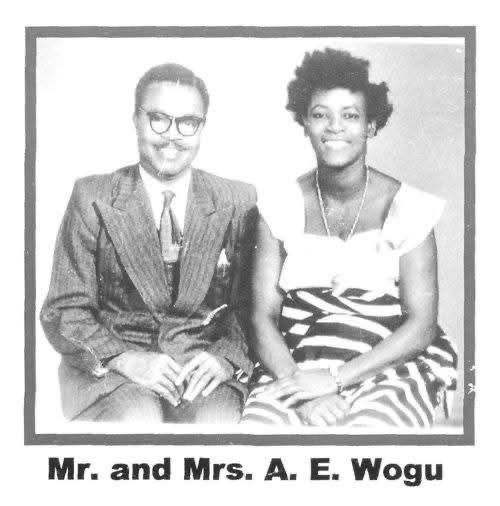
The pioneering role of Mr and Mrs A. E. Wogu in the rise of indigenous Pentecostalism
The explosive growth of Pentecostal Christianity in Nigeria during the twentieth century did not emerge overnight. Long before megachurches, crusade grounds, and global ministries, the movement was shaped by small prayer groups, radical faith, and indigenous leaders who believed that Christianity in Africa must be spiritually vibrant and culturally rooted. Among the most influential of these pioneers were Mr and Mrs Augustus Ehurie Wogu, whose quiet but profound work in Eastern Nigeria helped spark what later became one of the most significant religious revivals in Nigerian history.
By the 1930s, Nigeria was already experiencing religious ferment. Dissatisfaction with mission churches, hunger for spiritual power, and the search for an African-led Christian expression created fertile ground for Pentecostal ideas. It was within this context that the Wogus emerged as key catalysts of renewal.
Augustus Ehurie Wogu: Faith and Public Life
Augustus Ehurie Wogu (A. E. Wogu) was not a cleric by training. He was a respected civil servant, educated and deeply rooted in Christian discipline. Like many early revivalists, his spiritual influence came not from formal ordination but from conviction, prayer, and leadership within lay Christian circles.
At a time when colonial society often separated public service from spiritual enthusiasm, Wogu embodied both. His faith was intense, practical, and unapologetically Spirit-filled. He believed that Christianity should be marked by holiness, prayer, divine healing, and the active presence of the Holy Spirit—beliefs that resonated deeply with many Nigerians who felt constrained by the formality of mission Christianity.
The Pentecostal Spark: Print, Prayer, and Providence
One of the most remarkable aspects of the Nigerian Pentecostal revival was how it was ignited. Rather than beginning with foreign missionaries, the movement was sparked through printed Pentecostal literature.
In the early 1930s, Wogu and other like-minded believers encountered Pentecostal Evangel, a magazine published by the Assemblies of God in the United States. The publication circulated testimonies of revival, Spirit baptism, divine healing, and missionary zeal. For Wogu and his associates, this literature provided language and theological grounding for experiences they were already seeking.
Inspired, they began intense prayer meetings, fasting, and Bible study sessions in their homes. These gatherings soon attracted others hungry for deeper spiritual life.
The Wogu Home as a Revival Centre
The home of Mr and Mrs Wogu in Umuahia, present-day Abia State, became one of the earliest hubs of Spirit-filled Christianity in Eastern Nigeria. It functioned as:
A prayer house
A teaching centre
A refuge for believers seeking healing and renewal
These meetings were marked by fervent prayer, testimonies, and an emphasis on personal holiness. Importantly, leadership was indigenous. Nigerians taught, prayed, interpreted scripture, and organised fellowships without missionary supervision.
This approach helped dismantle the idea that spiritual authority had to come from Europe or America.
Mrs Wogu and the Role of Women in Early Pentecostalism
While historical narratives often foreground male leaders, Mrs Wogu played a crucial role in sustaining and expanding the revival. She provided spiritual support, hospitality, organisational stability, and mentorship—functions that were essential to the survival of early Pentecostal fellowships.
Her partnership with her husband reflected a pattern later seen across Nigerian Pentecostalism, where women played powerful but often understated roles as prayer leaders, organisers, and spiritual anchors.
From Fellowship to Movement: Birth of Assemblies of God Nigeria
As the revival grew, correspondence began between Nigerian believers and the Assemblies of God in the United States. This relationship eventually led to the arrival of American missionaries in the late 1930s.
Crucially, because the movement already existed before foreign involvement, the resulting church developed with a strong indigenous identity. This distinguished Assemblies of God in Nigeria from many earlier mission-founded churches.
The values emphasised by Wogu and his peers—local leadership, spiritual experience, and African agency—became foundational to the denomination’s growth.
Impact on Nigerian Christianity
The legacy of Mr and Mrs A. E. Wogu extends far beyond Umuahia or the Assemblies of God denomination. Their work helped shape:
The broader Pentecostal and Charismatic movement in Nigeria
The idea that revival could emerge from African initiative
The theology of prayer, healing, and Spirit baptism that dominates Nigerian Christianity today
Many of Nigeria’s most influential pastors and evangelists trace their spiritual heritage, directly or indirectly, to the revival culture of the 1930s.
A Lasting Legacy
A photograph dated 29 March 1959, showing Mr and Mrs A. E. Wogu, captures not just a couple but a generation of believers whose faith reshaped Nigeria’s religious landscape. By that time, the movement they helped ignite had grown beyond imagination.
Their story reminds us that history is often made not only by those on pulpits or platforms, but by faithful individuals who open their homes, pray persistently, and dare to believe that renewal is possible.
Sources
This Week in AG History
Assemblies of God Nigeria historical archives
Ogbu Kalu, African Pentecostalism: An Introduction
J. D. Y. Peel, Religious Encounter and the Making of the Yoruba (contextual reference)
Nigerian church
Columns
Theophilus danjuma
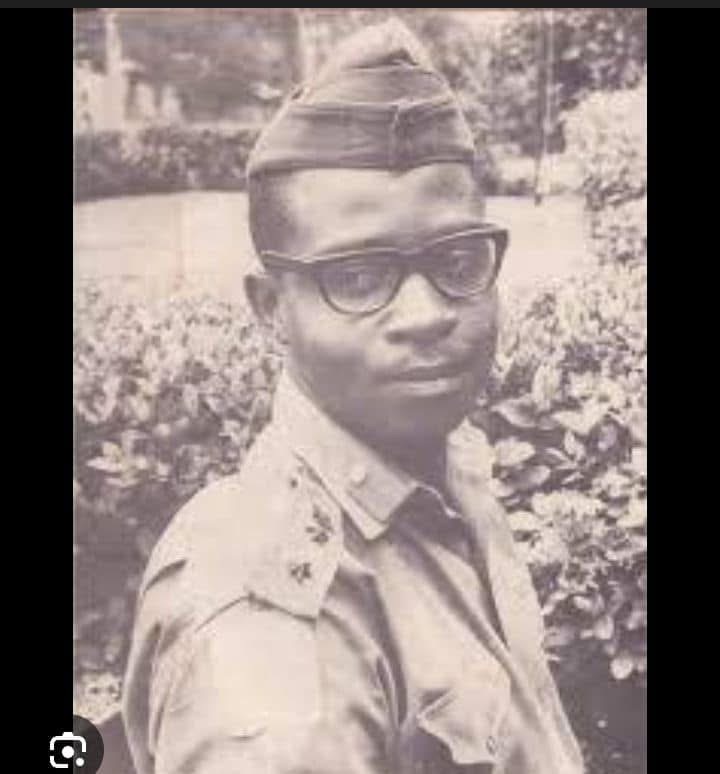
Lieutenant General Theophilus Yakubu Danjuma GCON ) is a retired Nigerian @rmy officer, billionaire businessman, and prominent philanthropist. He is considered one of Nigeria’s most influential and controversial milit@ry figures, having played a central role in several key events in the country’s post-independence history.
Born in Takum, Taraba State on December 9, 1938 , from a humble farming family.
He Attended St. Bartholomew’s Primary School and Benue Provincial Secondary School.
He received a scholarship to study history at Ahmadu Bello University but joined the Nigerian Army in 1960, the year Nigeria gained independence.
Commissioned in 1960, he served as a platoon commander in the Congo Crisîs and rose to the rank of Captain by 1966.
He is widely recognized for leading the troops that arrested and overthrew the first military Head of State, General Aguiyi-Ironsi, during the July 1966 counter-coup.
He served as the Chief of @rmy Staff from 1975 to 1979 under the milit@ry göverñmëñts of Murtala Muhammed and Olusegun Obasanjo.
After returning to public service in the democratic era, he served as Nigeria’s Minister of D£fence from 1999 to 2003 under President Obasanjo.
After returning to public service in the democr@tic era, he served as Nigeria’s Ministēr of Defēñce from 1999 to 2003 under President Obasanjo.
Following his military retirement in 1979, Danjuma became one of Africa’s wealthiest individuals through ventures in shipping and petroleum.
He owns NAL-Comet Group, A leading indigenous shipping and terminal operator in Nigeria.
Owns NAL-Comet Group, leading indigenous shipping and terminal operator in Nigeria.
South Atlantic Petroleum (SAPETRO): An oil exploration company with major interests in Nigeria and across Africa.
In 2009,he established TY Danjuma Foundation: with a $100 milliøn grant, it supports education, healthcare, and pôverty alleviation projects throughout Nigeria.
As of early 2026, he remains an active elder statesman, having celebrated his 88th birthday in December 2025.
He continues to be a vocal crìtic of Nigeria’s security situation, recently urging citizens to “rise up and DEFĒÑD themselves” against b@nditry and in$urgēncy when gøvernmēñt protection f@ils.
He remains a “towering national figure” in Taraba State, where he has recently toured ongoing construction for the T.Y. Danjuma University and Academy.
Danjuma is celebrated as a figure who transitioned from milit@ry leadership to business and philanthropy, significantly impacting Nigeria’s development.
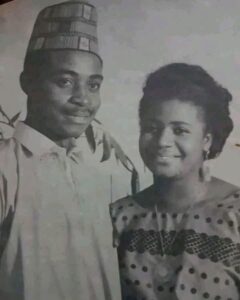
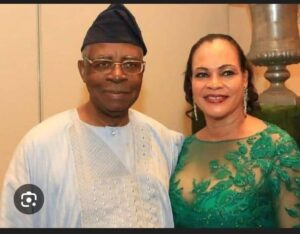
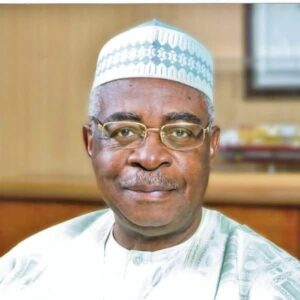
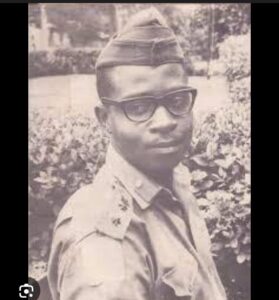
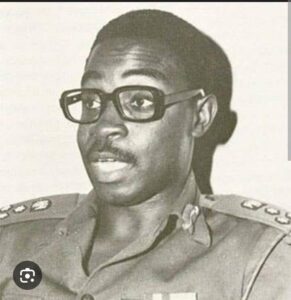
-
Business1 year ago
US court acquits Air Peace boss, slams Mayfield $4000 fine
-

 Trending1 year ago
Trending1 year agoNYA demands release of ‘abducted’ Imo chairman, preaches good governance
-

 Politics1 year ago
Politics1 year agoMexico’s new president causes concern just weeks before the US elections
-

 Politics1 year ago
Politics1 year agoPutin invites 20 world leaders
-

 Politics1 year ago
Politics1 year agoRussia bans imports of agro-products from Kazakhstan after refusal to join BRICS
-
Entertainment1 year ago
Bobrisky falls ill in police custody, rushed to hospital
-
Entertainment1 year ago
Bobrisky transferred from Immigration to FCID, spends night behind bars
-
Education1 year ago
GOVERNOR FUBARA APPOINTS COUNCIL MEMBERS FOR KEN SARO-WIWA POLYTECHNIC BORI



